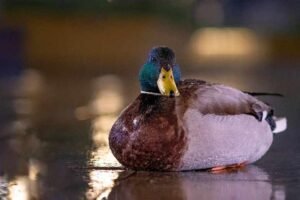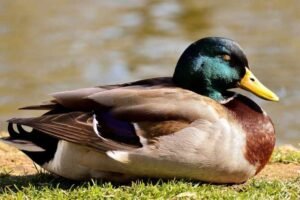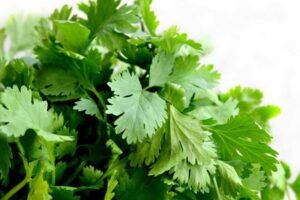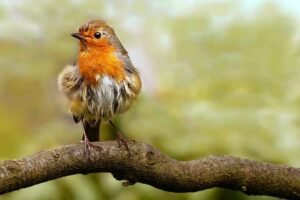Can birds eat porridge oats? Should you feed it to them? The simple answer is yes! Birds can eat porridge oats, and there is no risk in providing your backyard wildlife with this feed. In fact, porridge oats, cereals, and rice are highly nutritious, making them an excellent feed for birds. They are reasonably cheap to grab, and birds do seem to like this feed option. However, if you are using commercial breakfast cereals, portion control is highly recommended.
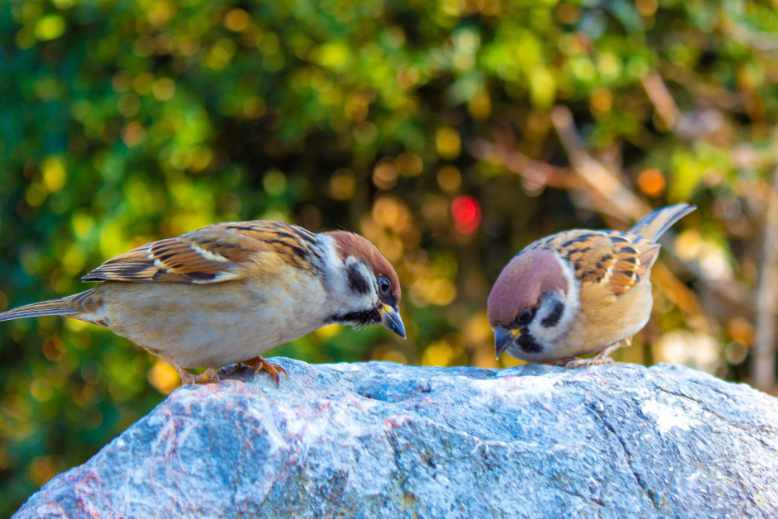
Whether you are looking for feed options for your domestic bird or wish to feed the wild visitors, choosing the right bird feed is important. Knowing what to and not to feed birds is really a daunting task. Birds, in general, love to munch on a variety of different feeds and have a wide plate. However, not all food that a bird likes is necessarily suitable for its well-being.
Grains, fruits, and different types of seeds are preferred for bird feed, but what about porridge oats? No doubt, porridge oats are classified as superfoods for humans but can birds eat porridge oats? Should you feed it to them, or it will cause any complications? By this point, we know it is safe to feed porridge oats to your birds, but what is the right way to prepare this feed?
This article will delve a little deeper into finding the right ways to prepare porridge oats for birds. Stick around to learn what makes this feed harmful for your backyard wildlife.
Can birds eat porridge oats?
A simple answer is yes. Birds can.
Birds consume a variety of food options as a part of their natural diet. These garden guests forage and eat different sorts of insects, and they can eat any seed you have left in your backyard for them.
Oats, in general, are a pretty popular food option for humans. And due to their healthy and nutritious value, birds can also enjoy this occasional treat. Porridge oats are pretty low-priced, making them a great addition to many bird’s diets. So, if you think about whether you can offer your leftover porridge oats to the birds, go for it. Just ensure an adequate supply of water is available alongside the bird food.
Porridge oats offer a lot of nutrients, but they should always be fed in moderation. Plus, it is best to mix this feed with other ingredients such as fruits, seeds, and grains. This mixture of ingredients makes the feed a bit more interesting for birdies to enjoy. Although many wild and captive birds devour raw porridge oats with great delish, they are particularly enjoyed by blackbirds.
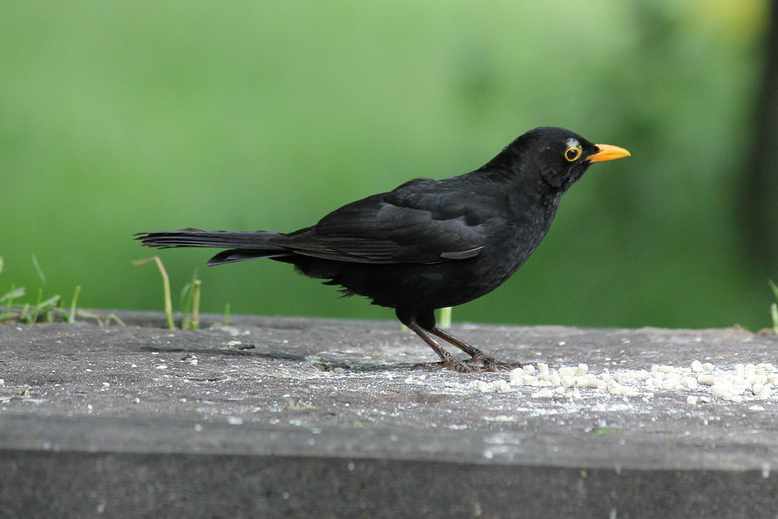
Why are porridge oats good for birds?
Porridge oats and other plain cereals are high in fiber and offer a lot of minerals and vitamins. These grains are good for birds for the same reasons they are good for us. Porridge oats, in particular, are believed to be the healthiest grains, and birds absolutely love this feed.
Porridge oats are enriched with slow-release carbohydrates, magnesium, zinc, and vitamin B. These carbohydrates provide energy, making them an excellent food option for wild birds during the freezing months. Oats are also believed to be at a higher end of the scale when it comes to keeping the birds full for longer and providing them with much-needed energy. They are loaded with numerous antioxidant compounds, important minerals, and vitamins such as
- Manganese
- Vitamin B5
- Iron
- Copper
- Vitamin B1
- Zinc
- Phosphorus
- Folate
Porridge oats are incredibly healthy for both birds and humans alike and are probably amongst the most nutrient-dense feed birds can enjoy.
Caution
Always double-check the ingredients of a product designed for human consumption. Many types of cereals available on the market look like plain porridge oats but are filled with preservatives and artificial flavoring to satisfy the human taste buds. The sugar content of such cereals is much higher, making them inappropriate for birds to consume.
Can I regularly feed porridge oats to Birds?
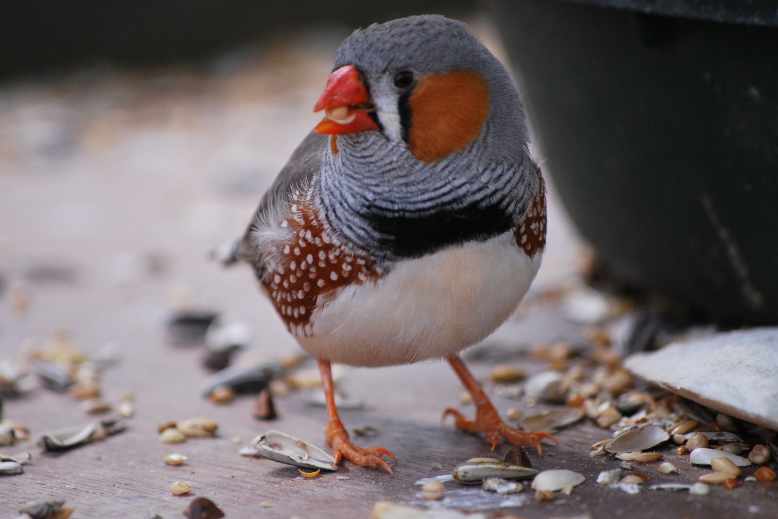
Not exactly.
Porridge oats are a healthy alternative for birds to consume. However, bird lovers need to be cautious regarding the amount of cereal they are about to offer their birds. Usually, these cereals are not fed to any bird as a stand-alone meal. Instead, they are offered as a part of a feed mix.
If you are about to feed oats to your birds as a mixture, a handful of porridge oats would be more than enough. It is also good to portion out all the ingredients of the mixture, so the end feed has just the right amount of porridge oats. It will ensure that your birds are getting a well-balanced diet and you are not overdoing the number of nutrients. When it comes to feeds, birds really seem to enjoy the variety. So, there is no harm in mixing various ingredients designed for a bird’s stomach.
Feeding porridge oats to birds at a regular base is safe, but only if you give it the right way and with a mixture of other ingredients. As long as you have ultimate portion control, porridge oat is ideal for birds to consume daily.
Can birds eat raw oats?
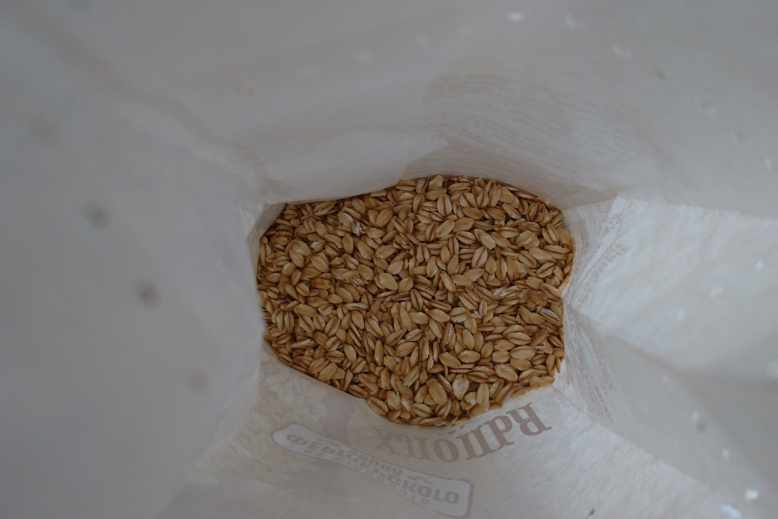
Yes, they can. And this is the only way porridge oats should really be fed to birds.
Birds love the taste of porridge oats, and you will notice that cereals get razed pretty fast by hungry birds. Birds have gizzard that helps them break down the food before the process of digestion happens. Gizzards are perfectly capable of breaking down hard grains into small pieces. Therefore, you don’t have to be concerned about whether birds can break down oats or not.
Uncooked porridge oats may be fine for birds, but you should always serve them in moderation. Plus, oats should never be given as a major part of their diet.
The drawback to uncooked porridge oats is that they have higher calories, so if your captive birdie is overweight, feeding oats isn’t a smart move. These grains are also very dry to consume. Though this isn’t likely to keep the birds from eating them, the poor souls can become very dehydrated.
While feeding any type of cereals to your lovely birds, make sure there is a supply of freshwater nearby for the fowls to quench their thirst. It will prevent dehydration and will also help the birds to enjoy their meal more.
Can birds eat cooked porridge oats?
While raw porridge oats are a fine addition to your bird’s diet, we cannot say the same about cooked porridge oats. And there are a couple of reasons why:
- If you have ever washed a bowl of porridge after being set for a while, you will definitely know how stubborn and sticky these oats are to remove.
- When cooked, porridge oats can turn into a glutinous consistency. They can become extremely sticky.
- Cooked porridge oats solidify after some time. So there is a pretty strong chance that the mixture will solidify around the bird’s beak, making it impossible for the bird to open its mouth. This situation can be particularly critical for wild birds as no human is likely to notice their bill is sealed. Such birds cannot open their beaks to eat anything and eventually die out of malnutrition.
For humans, cooking porridge oat seems like an obvious thing to do. But always ensure you feed uncooked oats to the birds. Offer their feed in the rawest form and try your best to refrain from cooking anything that will be offered to birds.
How to feed porridge oats to birds?
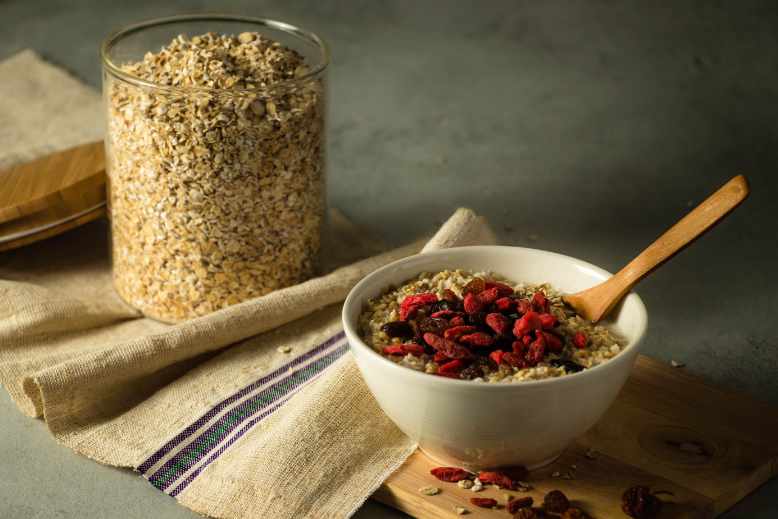
- Most bird owners feed porridge oats to their birds in a mixture of grains, fruits, and seeds. Since porridge oats tend to be extremely dry, some owners prefer to water down the feed a little to keep the birds hydrated.
- Porridge oats can be combined with homemade fat balls. Just remember to use two parts of hard fat and one part of oats. You can also add some dried fruits.
- Most commercially sold bird mixes contain porridge oats as one of their key ingredients. If you are a busy birder, these readymade bird mixes are a good choice.
- A lot of bird mixers contain artificial coloring to make them more appealing. Such preservatives are completely unnecessary, and you need to double-check the ingredients list before grabbing this type of feed.
- For captive and indoor birds, we would suggest investing in a bird feeder where all the feed mixes can stay self-contained while the birds can still eat it.
- Putting porridge oat into a loose bowel is definitely going to make quite a bit of mess. This is not an ideal situation and will require much more cleaning.
- Although it is fine to scatter the porridge oat in your lawn for the birds, investing in a tray or a bird feeder is a smart move. Bird feeders can protect the food placed in them while keeping them free from rainwater. Most birds are not picky, but they might not be too interested in something floating in the sea of rainwater.
Which porridge oats can I offer to my garden birds?
Most porridge oats are fine for offering to garden birds. Just make sure they are raw and not cooked.
Jumbo oats, rolled oats, pinhead oats, and steel-cut oats are all alright to feed birds.
Feeding instant porridge sachet or pots to birds is a huge no. These contain sugar and milk powder in their ingredients which are inappropriate for the birds to eat.
Which birds are likely to eat oats?
Most granivorous birds seem to enjoy oats. These birds include
- Sparrows
- Buntings
- Blackbirds
- Doves
- Partridge
- Finches
- Pigeons
- Grouse and other game birds
Other frequently asked questions:
Can birds eat rice?
We have all heard the rumors that rice makes a bird’s stomach swell and explode. Which is not true at all! The fact is, rice cooked or uncooked is harmless for birds to consume. Birds have a strong metabolism. They have to quickly digest their food to convert it into energy to support their daily activities. Therefore, rice does not stay in their bellies long enough to swell. Plus, a bird’s stomach isn’t that hot to actually “cook” the rice.
Can birds eat bread?
Even though birds can digest bread, they should not have it. Bread has zero effect and provides no nutritional value for birds. It only fills up the tiny stomach of your lovely birds and gives them a false sense of satisfaction. The birds have no idea that their stomachs are filled with something that offers no calories to metabolize. And considering how many nutrients and density of calories a bird needs to survive, it is a deadly treat.
Can birds eat chocolate?
Birds, no doubt, have a sweet beak. Chocolate, in particular, is extremely toxic for birds. It contains theobromine and caffeine, and even the tiniest dose of these substances can significantly increase your bird’s heart rate. Besides, some birds may not immediately die. They can suffer from diarrhea and vomiting. Other long and short-term health concerns can also arise.
Dark chocolate contains more cocoa, increasing its toxicity for birds. Yet, even the light chocolates have milk in them, which birds cannot digest.
Can birds eat peanut butter?
Being an adequate source of protein, fats, and calories, peanut butter provides good energy to birds for their active needs. Most small nut-loving birds will happily snack on peanut butter as it is easier to collect peanut butter in their small beaks. Large bird species, however, are likely to enjoy shelled peanuts rather than soft butter.
Final Words
Can birds eat porridge oats? They sure can! Just like us, birds also need a balanced and varied diet to remain healthy. As long as you feed uncooked porridge oats, offer oats in moderation, and provide plenty of water, your birds will be happy with this tasty addition to their diet.
Just be prepared to welcome more birds once they realize you’ve got the goodies!

